Today Current Affairs: 7th January 2022 for UPSC IAS exams, State PSC exams, SSC CGL, State SSC, RRB, Railways, Banking Exam & IBPS, etc
Table of Contents
25th National Youth Festival:

Union Minister of Youth Affairs and Sports unveiled the Logo and Mascot of the 25th National Youth Festival to be held in Puducherry from 12th -16th January 2022.
- Shri Anurag Thakur also unveiled the tag-line of the National Youth Festival, Shaksham Yuva Shashakth Yuva meaning Capable Youth- Forceful Youth, Able Youth- Strong Youth.
- National Youth Festival is organized by the Government of India every year in collaboration with one of the States from January 12th to 16th to commemorate the birth anniversary of Swami Vivekananda i.e. 12th January.
- The basic objective of the NYF is to bring the youth of the country together in an attempt to showcase their talents in various activities to cover almost all socio-cultural aspects of life, providing an opportunity to amateur young artists to express themselves.
Security Of The Prime Minister:
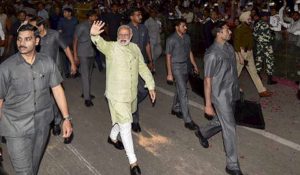
With the Prime Minister’s cavalcade stranded on a flyover in Punjab’s Ferozepur district for over 15 minutes due to a protest, the Ministry of Home Affairs has sought a report from Punjab government on what it called “a major lapse in the security of the PM”.
- Planning of the PM’s security during any visit is an elaborate exercise that involves central agencies and state police forces.
- Broad guidelines are laid down in what is called the SPG’s Blue Book.
- Three days before any planned visit, the SPG (Special Protection Group), which is responsible for PM’s security, holds a mandatory Advance Security Liaison (ASL) with everyone involved in securing the event, including Intelligence Bureau officials in the concerned state, state police officials and the concerned district magistrate.
- Once the meeting is over, an ASL report is prepared, based on which all security arrangements are made.
- The meeting discusses how the PM would arrive (by air, road or rail) and, once he lands, how he would reach the venue of his programme (generally by helicopter or road).
- SPG only gives proximate security.
- When PM is travelling to any state, it is the responsibility of the state police to ensure overall security.
- They have the responsibility of intelligence gathering, route clearance, venue sanitisation and crowd management
Indira Gandhi Rashtriya Uran Akademi (IGRUA):
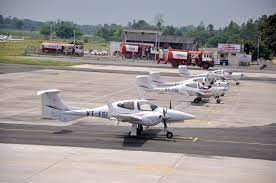
Indira Gandhi Rashtriya Uran Akademi (IGRUA)sets a new record of 19000 flying hours in 2021.
- During the year 2021, IGRUA piled up 19000 hours of flying as against an average yearly flying output of 15000 per year during the previous five years while it was 11641 hours in 2020.
- IGRUA achieved this milestone of 19000 hours despite continued effect of pandemic and inclement weather conditions due to Tauktae Cyclone in 2021.
- Indira Gandhi Rashtriya Uran Akademi(IGRUA) was established by the Government of India in the year 1986 at Fursatganj Airfield, presently in the district of Amethi in Uttar Pradesh.
- IGRUA is an Autonomous Body established under the Societies Registration Act 1860 and is administered by a Governing Council under the Ex-officio Chairmanship of Secretary, Ministry of Civil Aviation.
Chilika Lake: Odisha
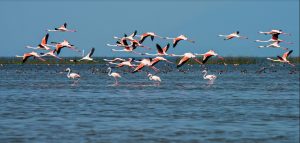
As per the water bird status survey-2022 conducted in the Chilika lake, nearly 11 lakhs water bird and wetland dependent species visited the lake.
- Chilika Lake is the largest brackish water lake and wintering ground of the birds in the Indian subcontinent.
- Chilika is Asia’s largest and world’s second largest lagoon.
- In 1981, Chilika Lake was designated the first Indian wetland of international importance under the Ramsar Convention.
- Major attraction at Chilika is Irrawaddy dolphins which are often spotted off Satapada Island.
- The large Nalabana Island (Forest of Reeds) covering about 16 sq km in the lagoon area was declared a bird sanctuary in 1987.
- Kalijai Temple – Located on an island in the Chilika Lake.
- Chilika lake hosts birds migrating from thousands of miles away from the Caspian Sea, Lake Baikal, Aral Sea, remote parts of Russia, Kirghiz steppes of Mongolia, Central and South East Asia, Ladakh and the Himalayas.
- The birds find the vast mud-field and abundant fish stock here suitable to congregate.
Migratory Species in India:
- India is a temporary home to several migratory animals and birds.
- The important among these include Amur Falcons, Bar-headed Geese, Black-necked cranes, Marine turtles, Dugongs, Humpback Whales, etc.
- India has also launched the National Action Plan for the conservation of migratory species under the Central Asian Flyway as India is a party to Convention on Migratory Species (CMS).
Jagannath Temple Act, 1954:
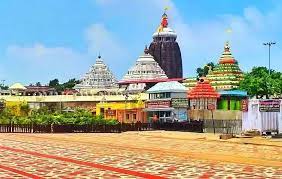
In a historic decision, the Odisha state cabinet has approved amendments to the Sri Jagannath Temple Act of 1954.
- In the year 1806, the then British government had issued regulations for management of the Jagannath temple which was referred to as the Juggernaut temple by the colonial rulers.
- Under these regulations, pilgrims who visited the temple were expected to pay taxes.
- The British government was entrusted with appointing senior priests at the temple.
- The powers of management of the temple were passed on to the King of Khordha after three years while the colonial government continued to retain some control.
- After India gained Independence, the Jagannath Temple Act was introduced in the year 1952, which came into effect in 1954.
- The Act contains provision on land rights of the temple, duties of the sevayat (priests), administrative powers of the Shri Jagannath Temple Managing Committee, rights and privileges of the Raja of Puri and other persons connected with the management and administration of the temple.
Recent Amendments:
- The power will now be delegated to temple administration and concerned officials for sale and lease of land in the name of Jagannath temple.
- Unlike earlier, no approval will be required from the state government for the process.
- The Section 16 (2) of the act states that no immovable property taken possession of by the temple committee shall be leased out, mortgaged, sold or otherwise alienated except with the previous sanction of the State Government.
Smart cities And Academia Towards Action & Research (SAAR) Program:
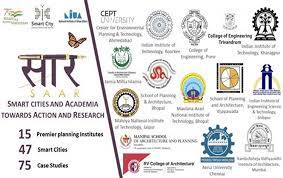
The Ministry of Housing and Urban Affairs (MoHUA) has launched “Smart cities and Academia Towards Action & Research (SAAR)” program.
- It is a joint initiative of MoHUA, National Institute of Urban Affairs (NIUA) and leading Indian academic institutions of the country.
- Under the program, 15 premier architecture & planning institutes of the country will be working with Smart Cities to document landmark projects undertaken by the Smart Cities Mission.
- The documents will capture the learnings from best practices, provide opportunities for engagement on urban development projects to students, and enable real-time information flow between urban practitioners and academia.
- MoHUA and NIUA will facilitate linkages between the Institutions and Smart Cities for specific landmark projects that are to be documented under the program.
- The first activity envisaged under SAAR is to prepare a compendium of 75 landmark urban projects in India under the Smart City Mission.
PMFME Scheme:
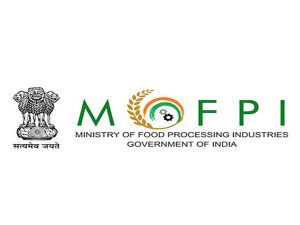
The Ministry of Food Processing Industries and NAFED (National Agricultural Cooperative Marketing Federation of India Limited) today launched six, One District One Product (ODOP) brands under the Pradhan Mantri Formalisation of Micro food processing Enterprises (PMFME) Scheme.
- The Ministry has signed an agreement with NAFED for developing 10 brands of selected ODOPs under the branding and marketing component of the PMFME scheme. Out of these, six brands are Amrit Phal, Cori Gold, Kashmiri Mantra, Madhu Mantra, Somdana, and Whole Wheat Cookies of Dilli Bakes.
- Launched under Atma Nirbhar Abhiyan, it aims to enhance the competitiveness of existing individual micro-enterprises in the unorganised segment of the food processing industry and to promote formalisation of the sector and provide support to Farmer Producer Organisations, Self Help Groups, and Producers Cooperatives along their entire value chain.
- The scheme adopts the One District One Product (ODOP) approach to reap the benefit of scale in terms of procurement of inputs, availing common services and marketing of products.
- It will be implemented over a period of five years from 2020-21 to 2024-25.
One District One Product (ODOP) Approach:
- ODOP for the scheme will provide the framework for value chain development and alignment of support infrastructure.
- There may be more than one cluster of ODOP products in one district.
- There may be a cluster of ODOP products consisting of more than one adjacent district in a State.
- The States would identify food products for districts keeping in view the existing clusters and availability of raw material.
- The ODOP could be a perishable produce based or cereal based or a food item widely produced in an area. E.g. mango, potato, pickle, millet based products, fisheries, poultry, etc.
Financial Support:
- Existing individual micro food processing units desirous of upgrading their units can avail credit-linked capital subsidy at 35% of the eligible project cost with a maximum ceiling of Rs.10 lakh per unit.
- Support would be provided through credit linked grants at 35% for development of common infrastructure including common processing facility, lab, warehouse, etc. through FPOs/SHGs/cooperatives or state owned agencies or private enterprise.
- A seed capital (initial funding) of Rs. 40,000- per Self Help Group (SHG) member would be provided for working capital and purchase of small tools.
- Funding:
- It is a centrally sponsored scheme with an outlay of Rs. 10,000 crore.
- The expenditure under the scheme would be shared in 60:40 ratio between Central and State Governments, in 90:10 ratio with North Eastern and Himalayan States, 60:40 ratio with UTs with legislature and 100% by Centre for other UTs.
United Nation Security Council:
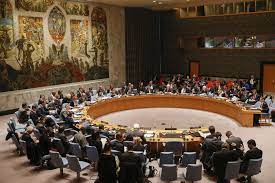
The United Nation Security Council (UNSC) got five new non permanent members (Albania, Brazil, Gabon, Ghana and the United Arab Emirates).
- Estonia, Niger, St Vincent and the Grenadines, Tunisia and Vietnam finished their terms recently.
- Albania is joining for the first time while Brazil is taking an 11th turn. Gabon and Ghana each have been on the council three times before and the UAE once.
- More than 50 of the UN’s 193 member countries have never been elected to the council since its formation.
UNSC:
- The Security Council was established by the UN Charter in 1945. It is one of the six principal organs of the United Nations.
- The other 5 organs of the United Nations are—the General Assembly (UNGA), the Trusteeship Council, the Economic and Social Council, the International Court of Justice, and the Secretariat.
- Its primary responsibility is to work to maintain international peace and security.
- The council is headquartered at NewYork.
- Members:
- The council has 15 members: the five permanent members and ten non-permanent members elected for two-year terms.
- The five permanent members are the United States, the Russian Federation, France, China and the United Kingdom.
- India, for the eighth time, has entered the UNSC as a non-permanent member last year (2021) and will stay on the council for two years i.e 2021-22.
- Each year, the General Assembly elects five non-permanent members (out of ten in total) for a two-year term. The ten non-permanent seats are distributed on a regional basis.
- The council’s presidency is a capacity that rotates every month among its 15 members.
- Voting Powers:
- Each member of the Security Council has one vote. Decisions of the Security Council on matters are made by an affirmative vote of nine members including the concurring votes of the permanent members.
- A “No” vote from one of the five permanent members blocks the passage of the resolution.
- Any member of the United Nations which is not a member of the Security Council may participate, without vote, in the discussion of any question brought before the Security Council whenever the latter considers that the interests of that member are specially affected.
Economical Weaker Sections:
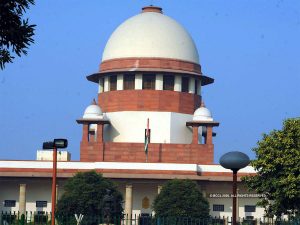
A government committee report told the Supreme Court (SC) that “income” is a “feasible criterion” for defining the “Economical Weaker Sections” (EWS).
- In October 2021 NEET aspirants filed a petition asking how ‘Rs 8 lakh’ has been taken as an annual income criterion to identify EWS for grant of 10% reservation in NEET medical admissions under the All India Quota (AIQ) category.
About the Report:
- The committee said the Rs 8 lakh criterion struck a “fine balance” between over-inclusion and inclusion errors and found it a “reasonable” threshold to determine EWS in order to extend reservation in admissions and jobs.
- Considering that the currently effective income tax exemption limit is around Rs 8 lakh for individuals, the committee is of the view that the gross annual income limit of Rs 8 lakh for the entire family would be reasonable for inclusion into EWS.
It rejected the notion that the Centre had “mechanically adopted” Rs 8 lakh as a number because it was also used for the OBC (Other Backward Classes) creamy layer cut-off.
Firstly, EWS’s criteria relates to the financial year prior to the year of application whereas the income criterion for the creamy layer in OBC category is applicable to gross annual income for three consecutive years. - Secondly, in case of OBC creamy layer, income from salaries, agriculture and traditional artisanal professions are excluded from the consideration whereas the Rs 8 lakh criteria for EWS includes all sources, including farming.
- So, despite being the same cut-off number, their composition is different and hence, the two cannot be equated.
- The desirability of a uniform income-based threshold has been upheld by the Supreme Court, and it can be adopted across the country as a matter of economic and social policy.
Multi Agency Centre (MAC):
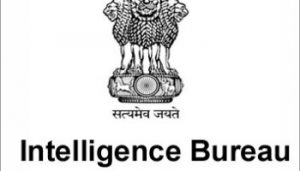
The Union government has asked the States to share more intelligence inputs through the Multi Agency Centre (MAC).
- MAC is a common counter-terrorism grid under the Intelligence Bureau that was made operational in 2001 following the Kargil War.
- As many as 28 organisations, including the Research and Analysis Wing (R&AW), armed forces and State police, are part of the platform.
- Various security agencies share real-time intelligence inputs on the MAC.
- Now functioning 24/7 as the nodal body for sharing intelligence inputs, MAC coordinates with representatives from numerous agencies, different ministries, both central and state.
Airtel Payments Bank Is Now A Scheduled Bank:

The Reserve Bank of India (RBI) has announced the inclusion of Airtel Payments Bank Ltd. in the Second Schedule to the Reserve Bank of India Act, 1934.
- With this, the bank can now pitch for government-issued Requests for Proposals (RFP) and primary auctions and undertake both Central and State Government business.
- Scheduled Banks in India refer to those banks which have been included in the Second Schedule of Reserve Bank of India Act, 1934.
- Every Scheduled bank enjoys two types of principal facilities: It becomes eligible for debts/loans at the bank rate from the RBI; and, it automatically acquires the membership of clearing house.
Airtel Payments Bank:
- It is among the fastest-growing digital banks in the country, with a base of 115 million users.
- It offers a suite of digital solutions through the Airtel Thanks app and a retail network of over 500,000 neighbourhood banking points.
- The bank turned profitable in the quarter ended September 2021.
- Payment banks were established to promote financial inclusion by offering; ‘modest savings accounts and payments/remittance services to migratory labour workforce, low-income households, small enterprises, other unorganised sector entities, and other users.’
- These banks can accept a restricted deposit, which is now capped at Rs 200,000 per person but could be raised in the future.
- These banks are unable to provide loans or credit cards. Banks of this type can handle both current and savings accounts.
- Payments banks can provide ATM and debit cards, as well as online and mobile banking.
Consumer Protection Rules, 2021:

In exercise of its powers under provisions of the Consumer Protection Act, 2019, the Central Government has notified the Consumer Protection (Jurisdiction of the District Commission, the State Commission and the National Commission) Rules, 2021.
- The new rules revised pecuniary jurisdiction for entertaining consumer complaints.
Overview of the new rules:
- Food and Public Distribution, district commissions will have jurisdiction to entertain complaints where the value of the goods or services paid does not exceed ₹50 lakh.
- The State commissions can look onto complaints in the range of ₹50 lakh- ₹two crores.
- The District Commissions will have jurisdiction to entertain complaints where value of the goods or services paid as consideration does not exceed 50 lakh rupees.
- State Commissions shall have jurisdiction to entertain complaints where value of the goods or services paid as consideration exceeds 50 lakh rupees but does not exceed two crore rupees, it notified.
- National Commission will have jurisdiction to entertain complaints where value of the goods or services paid as consideration exceeds two crore rupees.
- Currently, the Consumer Protection Act, 2019 promulgates a three-tier quasi-judicial mechanism for redressal of consumer disputes namely district commissions, state commissions and national commission.]
- The Act also stipulates the pecuniary jurisdiction of each tier of consumer commission.]
- The Consumer Protection Act, 2019 provides consumers the option of filing complaint electronically. To facilitate consumers in filing their complaint online, the Central Government has set up the E-Daakhil Portal.
- To provide a faster and amicable mode of settling consumer disputes, the Act also includes reference of consumer disputes to Mediation, with the consent of both parties.
- The Consumer Protection Act, 2019 stipulates that “every complaint shall be disposed of as expeditiously as possible and endeavour shall be made to decide the complaint within a period of three months from the date of receipt of notice by opposite party where the complaint does not require analysis or testing of commodities and within 5 months if it requires analysis or testing of commodities.”
Mullaperiyar Dam:
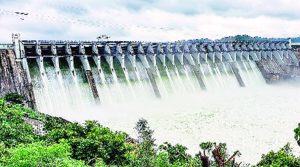
An application has been filed in the Supreme Court seeking appropriate direction to Government of Tamil Nadu to construct a new dam as also augment the storage capacity of the Vaigai dam downstream or to take such steps to strengthen the Mullaperiyar dam till an alternative dam is constructed.
- The petitioners said this is necessary to allay the fear of the millions whose lives are at risk in the event of the unthinkable, namely the collapse of the Mullaperiar dam and as a fallout the giving away of the Idukki dam which is certain to cause the loss of 35-40 lakhs of citizens in the five districts of Idukki, Thrissur, Ernakulam, Kottayam and Alappuzha, may wiping out of the city of Cochin.
- Recently, the Supreme Court directed the Supervisory Committee to take an immediate and firm decision on the maximum water level that can be maintained at Mullaperiyar dam, amid torrential rain in Kerala.
- The SC constituted a permanent Supervisory Committee in 2014 to oversee all the issues concerning Mullaperiyar dam. The dam is a source of friction between Tamil Nadu and Kerala.
- Kerala said the water level should not go above 139 feet, the same as what the court had ordered on August 24, 2018, when the State was hit by floods. It is because the lives of 50 lakh people would be in danger if the water level in the dam is raised.
- However, Tamil Nadu objected to this decision citing the Supreme Court judgments of 2006 and 2014, which fixed the maximum water level at 142 feet.
- Mullaperiyar Dam is located in Kerala, it is operated by Tamil Nadu following an 1886 lease indenture for 999 years (the Periyar Lake Lease Agreement) that was signed between the Maharaja of Travancore and the Secretary of State for India for the Periyar Irrigation works.
- Constructed between 1887 and 1895, the dam redirected the river to flow towards the Bay of Bengal, instead of the Arabian Sea and provide water to the arid rain region of Madurai in Madras Presidency.
- The dam is located on the confluence of the Mullayar and Periyar rivers inKerala’s Idukki district.
- Tamil Nadu claims that although it has undertaken measures to strengthen the dam, the Kerala government has blocked any attempt to raise the reservoir water level – resulting in losses for Madurai farmers.
- Kerala, however, highlights fears of devastation by residents living downstream in the earthquake-prone district of Idukki.
- Scientists have argued that if there is an earthquake in the region measuring above six on the Richter scale, the lives of over three million people will come under grave danger.




